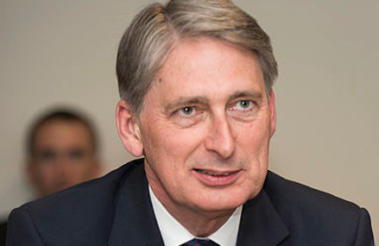Charity sector leaders have called on Philip Hammond to build on the “vision” set out in the Civil Society Strategy by taking “substantive action” on dormant assets and the UK Shared Prosperity Fund.
The letter has been signed by Tony Armstrong, chief executive of Locality; Caron Bradshaw, chief executive of Charity Finance Group; Vicky Browning, chief executive of Acevo; Sir Stuart Etherington, chief executive of NCVO; Jane Ide, chief executive of Navca; Carol Mack, chief executive of the Association of Charitable Foundations; Julia Kaufmann, chair of the Small Charities Coalition; Paul Streets, chief executive of the Lloyds Bank Foundation and Peter Lewis, chief executive of the Institute of Fundraising.
Hammond will deliver the autumn budget on 29 October and the signatories of the letter have suggested that the £2bn identified by the Dormant Assets Commission in 2017 should be “designated for strategic, long-term investment in civil society organisations”. They've also said that part of the UK Shared Prosperity Fund should be ring-fenced for a successor programme to the European Social Fund.
They have also called for the assets of the National Fund, an unused charitable endowment, to be put towards community foundations.
Money from dormant assets would be worth about £2bn, and the National Fund £500m. The Shared Prosperity Fund, if equivalent to EU funding, would be worth about £600m a year, although not all of that currently goes to charities. Dormant assets might also yield several hundred million pounds a year, in addition to the current capital.
The total commitment would be worth around £7bn a year to charities over the next seven years, although some would replace existing funding.
"The Civil Society Strategy sets out an admirable vision, particularly the commitment to Grants 2.0 and further place-based giving," the letter said. "Priority must now be given to how it is resourced. We are eager to work with the government to explore how, together, we can translate this vision into substantive action via two policy interventions."
Dormant assets
The letter said charities operate in an “increasingly tough environment” and that “severe pressures on local authority-funding” are “hitting the people and places facing disadvantage the hardest” and that the sector needs sufficient resources to “continue to help to build a country that works for everyone”.
“The government’s Civil Society Strategy has set out a vision for strengthening the capabilities, infrastructure and resources within communities, recognising the economic, civic and social capital that is required for communities to thrive.”
It also suggested using the £475m held by the National Fund in a similar way and directed the chancellor to an earlier proposal for a Community Wealth Fund.
Employment and skills
The authors of the letter said that the government had a “once in a generation opportunity” to build on the European Social Fund by ring-fencing a similar amount from the newly proposed UK Shared Prosperity Fund.
“ESF funding provides important investment for the UK in education and training and employment support, targeting vulnerable groups who often fall through the gaps of mainstream public services. This includes people with disabilities and health conditions, people facing multiple or complex barriers to employment, and ex-offenders,” they said.
|
Related articles











